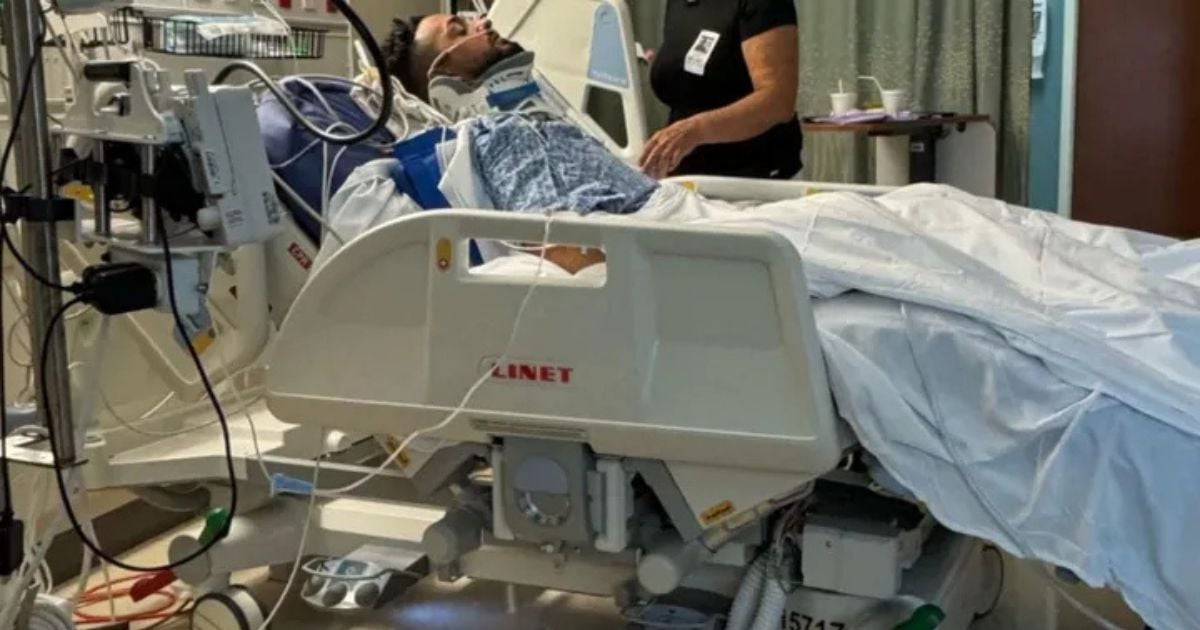An urgent appeal for help has emerged from Florida as a 30-year-old Cuban man named Frank faces a critical health crisis. A father of two young children, Frank recently relocated from Miami seeking a better life, only to suffer a severe accident that left him with multiple cervical fractures and a critical spinal cord injury.
Frank's family has launched a GoFundMe campaign to gather essential funds for his medical treatment and the extensive rehabilitation he will require in the coming months. Jorge Maya, a close relative and organizer of the fundraiser, explained that the accident occurred when Frank dived off a boat into shallow water, leading to a burst fracture in his C6 vertebra and spinal cord compression.
He was rushed to Gulf Coast Medical Center in Fort Myers, Florida, where an emergency surgery, a C6 corpectomy, was performed to stabilize his spine. Currently, Frank remains in the Trauma Intensive Care Unit, awaiting a second surgery for cervical fusion scheduled for June 30. Despite the severity of his condition, he has shown signs of recovery, being able to consume pureed foods and relying on assisted oxygen through the AIRVO system. Doctors remain optimistic about his progress and believe long-term respiratory support may not be necessary.
As the primary breadwinner for his family, which includes his wife and children aged 9 and 3, Frank's predicament has placed them under immense financial strain. The GoFundMe campaign has so far raised over $12,000, with a target of $20,000. "All funds collected will cover Frank's medical expenses, rehabilitation, and basic needs for his family during this challenging time," the campaign states.
The family expressed their gratitude for the support received, urging the community to continue sharing the campaign to reach a broader audience. "Every act of kindness offers hope to a family facing an uncertain reality," they added.
Solidarity in Times of Personal Crisis
In recent years, many Cuban residents in the United States have turned to GoFundMe to address personal tragedies, severe illnesses, or desperate family situations. This trend highlights the growing reliance on community support, particularly for those lacking medical insurance or local support networks.
For instance, in Santa Clara, activist Saily González initiated a campaign for Brianna, a girl with a lingual tumor unable to receive treatment in Cuba. She was admitted to a Miami hospital, and the fundraiser aimed to cover surgery and immigration expenses. In another case, a Cuban father in the U.S. sought to reunite with his four children, orphaned after their mother's cancer death in Cuba. One of the teenagers had attempted suicide upon learning they would be placed in state care. The GoFundMe campaign aimed to secure legal assistance for the family reunion.
Similarly, a Cuban mother in Miami with a chronic skin condition requested support on social media to cover medical costs, rent, and her daughters' education after losing her job due to several surgeries and lengthy hospital stays. In Florida, a young Cuban woman critically injured in a traffic accident led her mother to seek humanitarian visa assistance from Cuba. The accident had resulted in the deaths of four other young individuals, spurring parallel campaigns for funeral and hospitalization costs.
In another example, a Cuban woman in Bolivia received support through a GoFundMe account and a solidarity raffle organized by relatives abroad after being critically injured in a motorcycle accident, demonstrating the international reach of these initiatives.
Cuban Community Support and GoFundMe Campaigns
How did Frank's accident occur?
Frank's accident happened when he dived off a boat into shallow water, resulting in a burst fracture of his C6 vertebra and spinal cord compression.
What is the goal of the GoFundMe campaign for Frank?
The campaign aims to raise $20,000 to cover Frank's medical expenses, rehabilitation, and basic needs for his family during his recovery.
Why are many Cubans in the U.S. using GoFundMe?
Many Cubans in the U.S. resort to GoFundMe due to a lack of medical insurance or local support networks, relying on community solidarity for personal or family crises.
